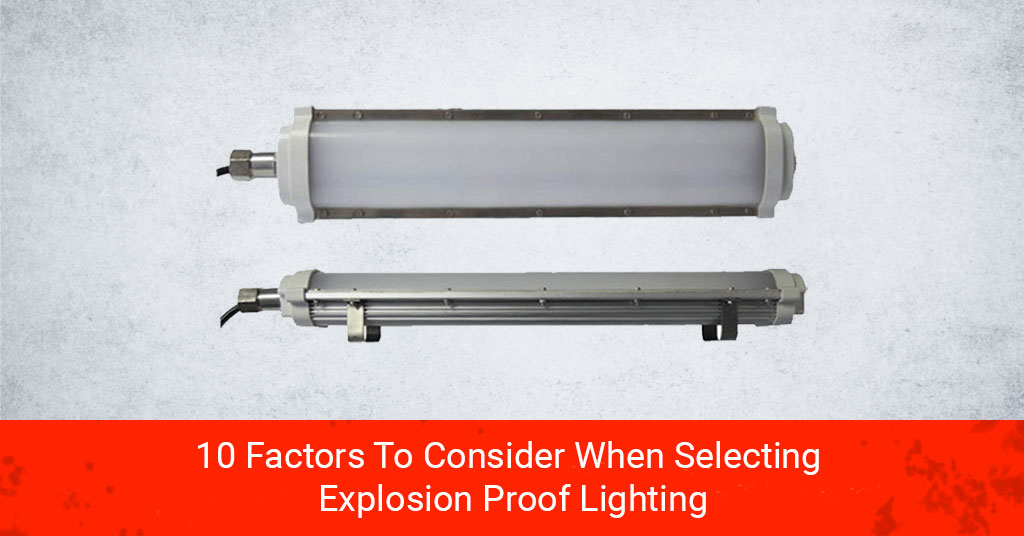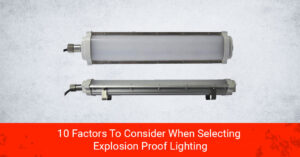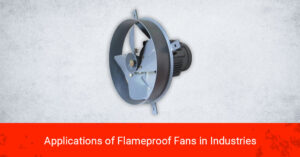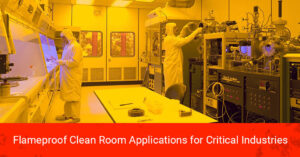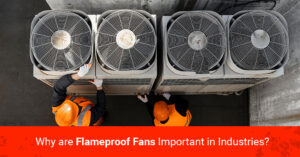Introduction
It’s no longer an unknown fact that Flameproof lights in industrial settings are crucial. Especially in industries like oil and gas, pharmaceuticals, etc as they serve not only the purpose of good visibility but also impacts crucial elements like safety standards and more. In this blog, we’ll discuss the 10 Factors to Consider When Selecting Flameproof Lighting for Hazardous Environments
Good lighting is a must-have in places like chemical plants, oil refineries, and mines to keep things running smoothly. It’s not only about productivity but also about keeping everyone safe from potential fires. Making sure there’s proper lighting is a necessity for protecting your team and keeping operations running efficiently.
Here are the 10 factors to keep in mind when choosing explosion-proof lights:
1. Certifications and Government Compliance
When selecting flameproof lighting fixtures, make sure to prioritize those vendors that have international certifications like ATEX, IECEx, etc. These certifications are a mark of guarantee that the products have been thoroughly tested and meet the required safety standards.
2. Type of Hazardous Area
Please take a look at the specific classification of the hazardous area where you’re looking to install the flameproof lights. Flameproof zones and divisions are used to determine the possibility of explosions. The lighting must be rated for this reason to make sure they’re able to withstand the fire dangers.
3. Environmental Conditions
When selecting Explosion-Proof lighting fixtures, do not forget about elements like high temperature , moisture levels, and exposure to corrosive materials. Explosion-proof designs deal significantly with harsh environmental conditions without compromising their capability or safety.
4. Lighting Technology
LED lighting technology is often preferred for hazardous environments due to its energy efficiency, durability, and instant illumination capabilities. Flameproof LED lights also produce less heat. Industries prefer them because they reduce the risk of igniting flammable substances inside hazardous environments.
5. Brightness
Ensure that the selected lighting provides adequate brightness and uniform illumination across the hazardous area. Proper visibility is essential for maintaining a safe working environment and reducing the risk of fire accidents.
6. Mounting Options
Consider the mounting alternatives for the flameproof lights and choose the most suitable choice primarily based on the format and structure of your facility. Wall-mounted, ceiling-mounted, and pendant-mounted fixtures offer flexibility in installation and positioning.
7. Maintenance
Flameproof lighting fixtures that are easy to maintain and service make maintaining them a breeze. This minimizes downtime and ensures a hassle free operation. While purchasing flameproof fans look for features such as easy access and replaceable components that ease-up maintenance tasks.
8. Energy Efficiency
Energy-efficient lighting not only reduces operational costs but also minimizes heat output. This is crucial in hazardous environments where temperature control is essential. LED fixtures in general, consume less energy than traditional lighting technologies and contribute to sustainability goals.
9. Emergency Lighting Features
In the event of a power outage or emergency situation, having reliable emergency lighting can make a significant difference in evacuating personnel safely. Choose explosion-proof lighting fixtures with built-in battery backup or emergency lighting capabilities to ensure continuous illumination during critical moments.
10. Longevity and Reliability
Invest in flameproof lighting which is built to last the strenuous day by day operation in hazardous environments. Quality production, long lasting materials, and a track record of reliability are key factors to consider when evaluating the longevity of lighting products from manufacturers.
Industries that Need Flameproof Lights
Flameproof lighting is critical in a variety of industries wherein the presence of flammable gases, vapors, or flammable dust poses an extended threat of explosion. Some of the industries that need flameproof lights are
1. Oil and Gas
The oil and gas industry operates in one of the most high risk environments where the slightest spark can lead to major explosions. Flameproof lighting is essential for ensuring visibility and safety in these settings.
2. Chemical Processing
Chemical plants contain massive amounts of hazardous materials This makes them highly prone to explosion hazards. Flameproof luminaries are crucial for better visibility around work areas and equipment without posing any risks.
3. Mining
Mines are extremely hazardous environments due to the presence of combustible gases, dust, and unstable working conditions. Flameproof lights are used in underground and surface mining operations to provide dependable illumination while reducing the risk of igniting flammable substances.
4. Manufacturing
Operations in industries like pharmaceuticals, food processing, and electronics manufacturing often involve using flammable materials. Hence, making flameproof lights surely an essential element to make certain protection in these excessive-hazard manufacturing environments.
5. Utilities
Power plants, wastewater treatment facilities, and other utility installations often handle combustible materials and gases in their processes. This makes them very susceptible to explosion hazards. Flameproof lights are essential for maintaining great visibility and safety in these critical infrastructures.
6. Marine and Offshore
Ships, offshore platforms, and marine terminals operate in challenging environments where flammable gases and vapors are present. Flameproof lights are specifically designed to withstand the harsh conditions encountered at sea while providing adequate illumination.
7. Aerospace
Aerospace manufacturing facilities and hangars require lighting solutions that can withstand the presence of fuel vapours and other flammable substances. Flameproof lights are preferred to minimize the risk of ignition during aircraft maintenance and operations.
8. Transportation
Facilities which include railway yards, airports, and transit depots take care of flammable fuels and chemical substances as part of their operations. Flameproof lighting plays an important function in making sure safety at some point of refuelling, maintenance, and storage activities.
Read our detailed blog on: Why Are Flameproof Lights Important In Industries?
Conclusion
To conclude, flameproof lights are an essential element for a wide range of industries where the risk of explosion exists due to the use of flammable substances. Flameproof lights provide safety and peace of mind in the workplace. These specialized lighting fixtures contribute to a much safer work environment and help prevent potentially life threatening accidents.
Bharat Flameproof has been providing reliable flameproof lights specifically built for hazardous environments in many industries all over the country. We have over 7+ years of expertise in flameproof light manufacturing. We offer a wide range of explosion-proof lights designed to meet the unique needs of different industrial applications. Contact us today to learn more about Bharat Flameproof Lights and luminaries.

